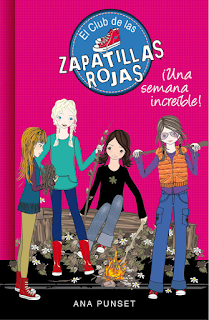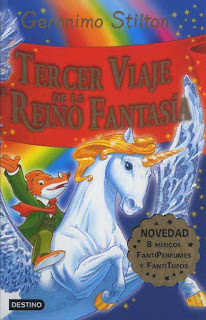The Twelve Stages of the Human Life CycleWhich stage of life is the most important? Some might claim that infancy is the key stage, when a baby’s brain is wide open to new experiences that will influence all the rest of its later life. Others might argue that it’s adolescence or young adulthood, when physical health is at its peak. Many cultures around the world value late adulthood more than any other, arguing that it is at this stage that the human being has finally acquired the wisdom necessary to guide others. Who is right? The truth of the matter is that every stage of life is equally significant and necessary for the welfare of humanity. In my book The Human Odyssey: Navigating the Twelve Stages of Life, I’ve written that each stage of life has its own unique “gift” to contribute to the world. We need to value each one of these gifts if we are to truly support the deepest needs of human life. Here are what I call the twelve gifts of the human life cycle: - Prebirth: Potential – The child who has not yet been born could become anything – a Michaelangelo, a Shakespeare, a Martin Luther King – and thus holds for all of humanity the principle of what we all may yet become in our lives.
- Birth: Hope – When a child is born, it instills in its parents and other caregivers a sense of optimism; a sense that this new life may bring something new and special into the world. Hence, the newborn represents the sense of hope that we all nourish inside of ourselves to make the world a better place.
- Infancy (Ages 0-3): Vitality – The infant is a vibrant and seemingly unlimited source of energy. Babies thus represent the inner dynamo of humanity, ever fueling the fires of the human life cycle with new channels of psychic power.
- Early Childhood (Ages 3-6): Playfulness – When young children play, they recreate the world anew. They take what is and combine it with the what is possible to fashion events that have never been seen before in the history of the world. As such, they embody the principle of innovation and transformation that underlies every single creative act that has occurred in the course of civilization.
- Middle Childhood (Ages 6-8): Imagination – In middle childhoood, the sense of an inner subjective self develops for the first time, and this self is alive with images taken in from the outer world, and brought up from the depths of the unconscious. This imagination serves as a source of creative inspiration in later life for artists, writers, scientists, and anyone else who finds their days and nights enriched for having nurtured a deep inner life.
- Late Childhood (Ages 9-11): Ingenuity – Older children have acquired a wide range of social and technical skills that enable them to come up with marvelous strategies and inventive solutions for dealing with the increasing pressures that society places on them. This principle of ingenuity lives on in that part of ourselves that ever seeks new ways to solve practical problems and cope with everyday responsibilities.
- Adolescence (Ages 12-20): Passion – The biological event of puberty unleashes a powerful set of changes in the adolescent body that reflect themselves in a teenager’s sexual, emotional, cultural, and/or spiritual passion. Adolescence passion thus represents a significant touchstone for anyone who is seeking to reconnect with their deepest inner zeal for life.
- Early Adulthood (Ages 20-35): Enterprise – It takes enterprise for young adults to accomplish their many responsibilities, including finding a home and mate, establishing a family or circle of friends, and/or getting a good job. This principle of enterprise thus serves us at any stage of life when we need to go out into the world and make our mark.
- Midlife (Ages 35-50): Contemplation – After many years in young adulthood of following society’s scripts for creating a life, people in midlife often take a break from worldly responsibilities to reflect upon the deeper meaning of their lives, the better to forge ahead with new understanding. This element of contemplation represents an important resource that we can all draw upon to deepen and enrich our lives at any age.
- Mature Adulthood (Ages 50-80): Benevolence – Those in mature adulthood have raised families, established themselves in their work life, and become contributors to the betterment of society through volunteerism, mentorships, and other forms of philanthropy. All of humanity benefits from their benevolence. Moreover, we all can learn from their example to give more of ourselves to others.
- Late Adulthood (Age 80+): Wisdom – Those with long lives have acquired a rich repository of experiences that they can use to help guide others. Elders thus represent the source of wisdom that exists in each of us, helping us to avoid the mistakes of the past while reaping the benefits of life’s lessons.
- Death & Dying: Life – Those in our lives who are dying, or who have died, teach us about the value of living. They remind us not to take our lives for granted, but to live each moment of life to its fullest, and to remember that our own small lives form of a part of a greater whole.
READING Grandma |
Grandma is 88 years old. Her hair is snowy-white, skin wrinkled and teeth all but gone. She is also quite deaf. Otherwise she is strong and active, often arguing with my mother over who should mop the floor.The doctor said she has Alzheimer's disease. In other words, she is senile. It is a sad fact but true.
The one glaring symptom of her disease is that her memory is very bad. She cannot remember things or gets them all mixed up. So she forgets where she has kept things and often will frantically search for them. Then she forgets what she is searching for, which adds to her frustration. When she misplaces her spectacles, she will don someone else's pair and happily go about the house. How she manages to see with the wrong spectacles baffles me.
As much as she cannot remember recent things, she can recall her younger days vividly. She rattles off the names of people she knew then and get my name and other family members' wrong. She cannot remember whether she just had dinner but can remember an event that happened fifty years ago. Sometimes she can be very difficult. Her being almost deaf does not help matters either. We have to speak loudly for her to hear.
Sometimes she says we are scolding her. We shout to say we are not scolding her, which makes things worse. We got her a hearing-aid. She would not wear it.
In between bouts of crankiness, she sometimes seems normal. But this seems to get lesser as her disease progresses. So we do our best to keep her out of harm's way. We lock the medicine cabinet and doors and hide dangerous things from her. It would be disastrous if she swallowed a bottle of pills or got lost while wandering in the streets. The latter has happened before. A kind neighbour brought her home.
It is unfortunate the last years of her life has to be like this, but it is so. We can do nothing but to help her along as much as we can. |




Comentarios
Publicar un comentario